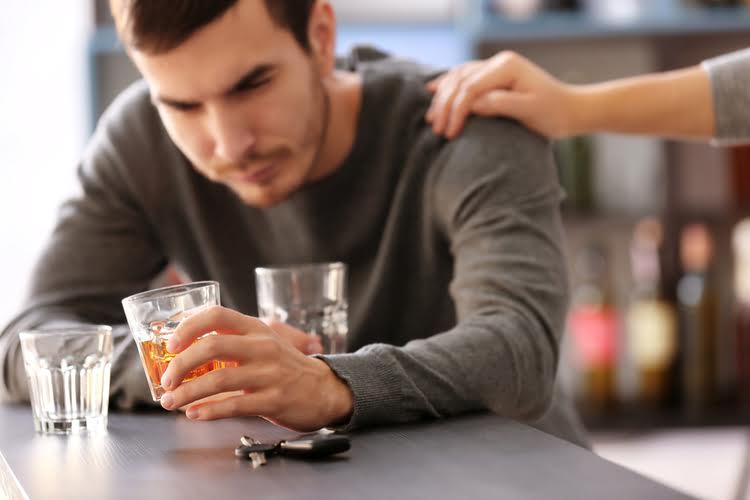If your alcohol use is causing trouble for you at work, at home, in social situations, or at school, it’s a problem. Binge drinking is when you drink enough alcohol to bring your blood-alcohol content up to the legal limit for driving. That works out to about five alcoholic drinks for men or four for women in less than 2 hours. A drink is 12 ounces of beer, 5 ounces of wine, or 1.5 ounces of liquor.
Talk to Friends and Family
- Surround yourself with individuals who support your decision to stop binge drinking and who can help create a healthy and alcohol-free social environment.
- Alternatively, you might be looking to cut down your alcohol to lower your health risks.
- It’s always wise to check with your doctor — she should be able to help you decide whether it is best for you to cut back or to abstain.
- Understanding that your struggle with binge drinking has biological roots removes shame and opens the door to treatments that address these underlying mechanisms.
People who often engage in binge drinking will more likely develop a drinking problem. A pattern of alcohol use disorder involves problems controlling drinking, being preoccupied with alcohol, and/or continued alcohol use despite problems. Binge drinking is among the most common, costly, and deadly patterns of excessive alcohol use in the world. Screening for alcohol misuse involves the use of validated tools to assess an individual’s alcohol consumption and identify potential problems. This process helps healthcare professionals identify individuals at risk of developing alcohol-related issues Sobriety and initiate early interventions. Developing healthier habits around alcohol and figuring out how to stop binge drinking alcohol requires planning, effort, and continuous support.

Alcohol Recovery Steps: How to Achieve Sustainable Sobriety
Practicing mindfulness and stress management skills also reduces the urge to drink when faced with triggers. Regularly reviewing your reasons for change and celebrating progress provides ongoing motivation and reinforces healthy habits. Start by removing alcohol from your home and avoiding environments that encourage heavy drinking. Make regular check-ins with a counselor or support group part of your routine.
Motivation and Personal Goals
Frequent binge drinking can slowly develop into alcohol use disorder, and this condition can have serious effects on your health and future. If you think that you’re slowly losing control of your drinking, it’s best to seek help right away. Several treatment options are available to help reduce or stop binge drinking. Outpatient counseling sessions offer flexibility, allowing you to maintain your daily responsibilities while attending scheduled appointments.
If they’re intoxicated, they might be more likely to misunderstand you, lash out, or forget the details of the conversations. Wait until you’re both able to have a clear, unrushed, and uninterrupted conversation. Therefore, drinking more water won’t necessarily protect you from a https://www.acquistarevinionline.com/alcohol-and-panic-attacks-is-your-mental-health-at/ hangover the next day.
Public Health
This includes cognitive behavioral therapy, dialectical behavior therapy, EMDR, acceptance and commitment therapy, trauma treatment, and mindfulness practices. Our holistic approach helps address physical, emotional, and mental issues causes by alcohol use. This includes hypnotherapy, meditation, acupuncture, massage therapy, personal training, watsu, and stress reduction. Binge drinking is commonly defined as consuming a large quantity of alcohol in a short span, usually within two hours, with the intent of becoming intoxicated. The NHS defines binge drinking as ‘drinking heavily over a short space of time’. Also, surround yourself with people who support your sobriety goals or don’t drink heavily, as they can fundamentally change your relationship with alcohol.

This can be hard, especially if your closest friends are also your biggest drinking buddies. Do something during the day and avoid hitting the bars or clubs with them. If you don’t think you’re dependent on alcohol, try going without it to see how you feel. For resources related to AUD, including how to get support, please visit the NIH website. We’ve also partnered with Moderation how to avoid binge drinking Management, a non-profit dedicated to reducing the harm caused by the misuse of alcohol. Sunnyside is the leading alcohol health platform focused on moderation and mindfulness, not sobriety.
Implementing these coping strategies and techniques can assist individuals in their journey towards sobriety. It’s important to remember that everyone’s path is unique, and finding the strategies that work best for you may require some experimentation and adjustment. Stay committed, seek support, and celebrate the progress you make along the way. Many people can recover if they go to a specialized rehab center that uses proven treatments.
Although moderate drinking still requires the liver to process alcohol, the speed at which alcohol enters your system when you drink in moderation is more manageable for the liver. Studies suggest that moderate drinking may reduce your risk for certain cognitive impairments like dementia. Because small amounts of alcohol are believed to make your brain cells “more fit”, healthy alcohol doses may help improve cognitive function in both short and long-term ways. There are various reasons why people binge drink, but several strategies can help you continue to progress towards a healthier lifestyle. Think about where you are and who you spend most of your time with when you binge drink. For men, heavy drinking is typically referred to as consuming at least 15 drinks per week.
Support groups offer a judgment-free zone to share experiences and learn from others who truly get it. You have many options, from programs like Alcoholics Anonymous (AA) to groups focused on moderation. Digital communities also offer incredible support right from your phone. The Reframe app has a thriving community where members encourage each other daily. Don’t worry if the first group isn’t the perfect fit; finding the right community is what matters.
- Reframing the mindset around alcohol and establishing healthier habits can lead to improved well-being and enhanced quality of life.
- Understanding what drives binge drinking is crucial to addressing it effectively.
- If your relationships constantly suffer because of excessive drinking, you may begin to feel unlovable and isolated, even when people around you want to help.
So part of setting limits has to include where you go when you drink. But if you are truly committed to drinking less and not quitting, you’ll have to set limits for yourself and stick to them. If you want to see what else is out there besides getting trashed every weekend with the same people, you have to be proactive.
Consuming more alcohol than your liver can adequately process can cause inflammation and organ irritation. But the physical effects of binge drinking extend beyond the liver. Binge drinking has both short and long-term effects on your physical and emotional health. Some of the effects of binge drinking are felt within the first five to ten minutes as the alcohol is quickly absorbed into blood. These risk factors do not guarantee that an individual will engage in binge drinking, and many people with these risk factors do not develop problematic drinking behaviors.
